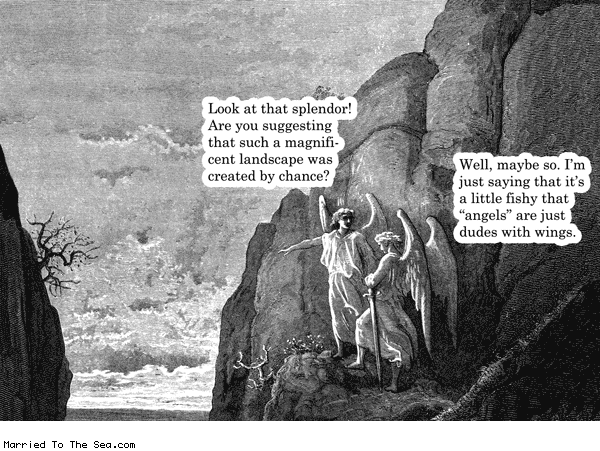In the USA today, there is a small but highly vocal (some would even say “strident”) movement dedicated to enshrining certain of their religious values in the laws and Constitution of their nation. Many of this movement proclaim that the Constitution and the laws of the United States are already this way; that the law of the land is based on Judeo-Christian principles and that separation of church and state is an illusion, never happened and even if it did happen was never intended by the founders of the nation and is some kind of liberal invention designed to make the US more vulnerable to suitcase bombs, atheist summer camps and movies about Charles Darwin which don't paint him as the eugenicist spiritual father of Hitler.
This is, of course, in stark contrast to the reality of the situation: the Constitution makes no mention of God, Jesus or the Bible (except for a nameless “Creator”); the Constitution itself proclaims that “no religious test” shall ever be required for a citizen to hold public office and that Congress shall “make no law” either establishing a religion or restricting the right of a citizen to worship as they please (as atheists hadn’t been invented yet, noone thought to include “the right to not be religious”, but it’s assumed, probably safely, that freedom of religion means, or should mean, freedom from it as well). It is also well-recognised that the Founders were framing the establishment of the new nation to be a shiny, free, glorious example of the humanist, rational values of the Enlightenment, the new Age of Reason which was making its presence felt across Europe in the 18th century. Some scholars speculate (compellingly) that Constitution chief architect Thomas Jefferson and many of his ilk, far from being Christians of any flavour, were even deists – but I must point out that their religious beliefs are irrelevant to their democratic intent and rationalist stance, which I suspect was meant to be the whole point.
Many dominionists in the US have argued against this alleged separation, pointing to the “One Nation under God” line in the Pledge of Obedience Allegiance. Leaving aside the odd ritual of swearing fealty to a flag, that little line used to read “One nation, indivisible,” until religious pressure forced the addition of the “under God” bit. How about “In God We Trust”, which appears on US currency? That was added in the 1950s during McCarthyist hysteria as a counter to alleged “godless” communism (a political hysteria peculiar to the US which persists no less strongly today, as evidenced by the bizarre behaviour of the tea-baggers, birthers, deathers and other assorted pithy signwriters who, in textbook Pavlovian manner, protest anything President Obama does, be it being black or making a harmlessly dull “kids, do your homework” speech on TV and who refuse to nail down exactly which particular political evil – fascism, socialism, communism, anarcho–syndicalism - Barry O allegedly wishes to impose on them by trying to make sure they can see a doctor without selling a kidney first, the heartless bastard).

